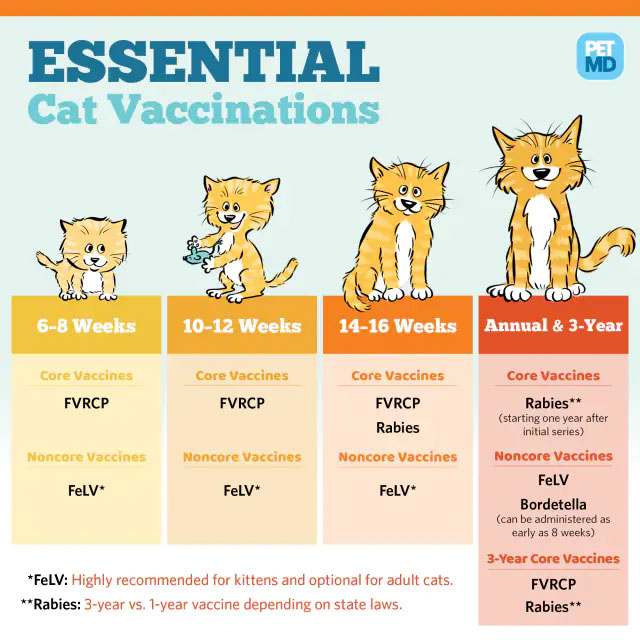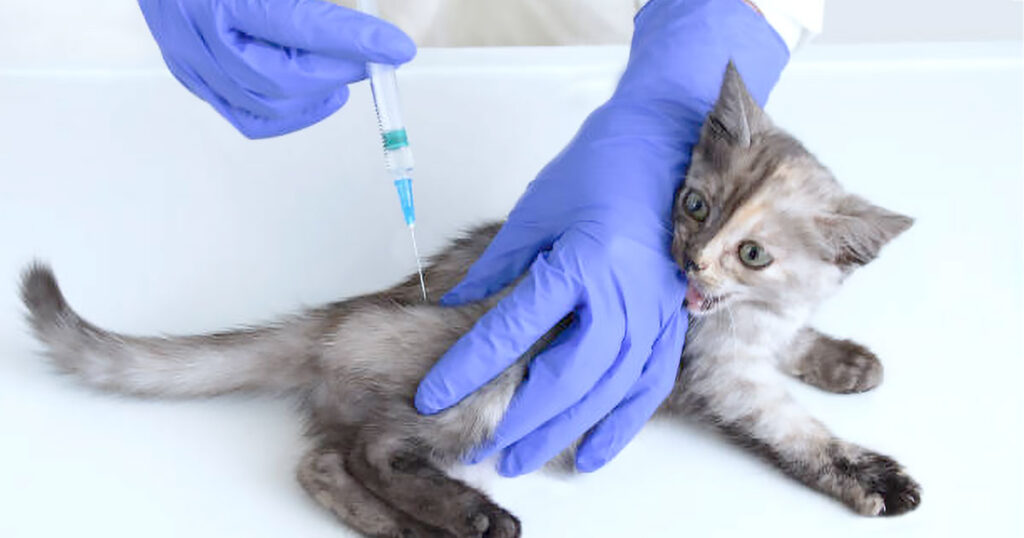Does my kitten or cat need a vaccine?
When you adopt a cat or kitten from Home at Last Rescue, he/she will be up to date on immunization, and will have been vet checked. However, it is important to take your new cat to your own vet for a baseline wellness check, preferably in the first couple of weeks after adoption.
Especially if you are a new cat owner, read through the Cat Owner’s Brochure linked below. You will find the information well presented and informative.
The chart below, Essential Cat Vaccinations, updated in 2020, is from Pet MD.

Wellness Examination in Cats
What is a wellness examination?
A wellness examination is a routine medical examination of a cat who appears healthy, as opposed to an examination of a cat who who is ill. A wellness examination may also be called a ‘check-up’ or a ‘physical examination’. The focus of a wellness examination is the maintenance of optimal health.
How often should my cat have a wellness examination?
The answer to this question depends on your cat’s age and current health status. During early kittenhood, wellness exams are recommended on a monthly basis, while for the average adult cat, annual wellness examinations are the norm, and semi-annual examinations are recommended for middle aged, senior, and geriatric cats.
Why Does My Indoor Cat Need Rabies Vaccination?
Rabies is a human health concern, not just an animal health issue. Because rabies can be transmitted to humans and is nearly universally fatal, many communities have laws mandating rabies vaccination of pets. Rabies is most commonly transmitted by a bite from an infected animal. Bats, skunks, and raccoons are the most common sources of exposure to rabies by companion animals.
“Rabies is a human health concern, not just an animal health issue.”
Regardless of legal requirements, maintaining regular rabies vaccination makes good medical sense. Even a strictly indoor cat may find a way to sneak out of the house and be exposed to rabies by a wild animal in the neighborhood. A rabid bat could find its way inside, presenting an attractive hunting target for an indoor cat. It is simply not worth the risk to the cat or your human family members to decline vaccination against rabies.
ARTICLES
OMVA: Pet Health 101: Vaccinating Your Pet
OMVA: Cat Owner’s Brochure
VCA Canada: VCA Wellness Examination in Cats
